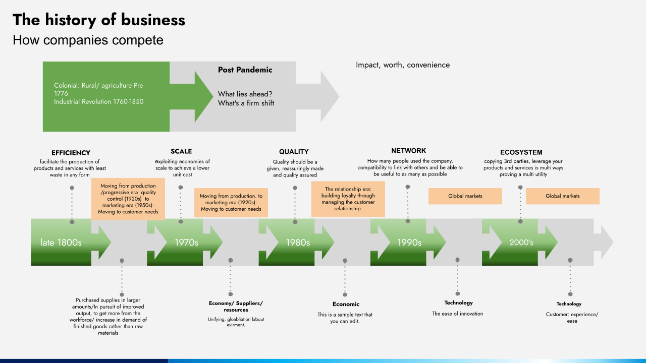Julie Perkins introduces ‘Stronger Together: The Power of Partnerships’ blog series.
Resilience. There’s so much hype surrounding this word, in particular following the Covid-19 pandemic. It’s almost lost its meaning and yet in contradiction, I believe for female entrepreneurs and all businesses, resilience is more important to find and leverage than ever.
Grit & effort
Award-winning psychologist, Angela Duckworth and author of ‘Grit: Why passion and resilience are the secrets to success’ claims: “As much as talent counts, effort counts twice”.
While I agree with the sentiment (although I am a huge advocate on finding the right talent too) I’d like to add another resilience ingredient to the mix. And that’s the power of partnerships in making us stronger – to be fit for the future.
Gaining strength, by acting as one
 The right collaborations – whether in the form of a merger, a business partnership or a supplier – can elevate entrepreneurial potential, and the ability to grow a business – together, gaining strength by acting as one.
The right collaborations – whether in the form of a merger, a business partnership or a supplier – can elevate entrepreneurial potential, and the ability to grow a business – together, gaining strength by acting as one.
And yet, on the flip side, the wrong relationships in small and medium-sized businesses can dilute what we stand for – weakening our vision of where we want to go and rather than creating the smooth, seamless road to growth we had envisioned, it can create a journey full of potholes.
However, as an entrepreneur, when thinking about how to grow, do any of the five below sentiments resonate?
- Fresh inspiration: A new partnership can prompt some strategic forward-thinking, focusing our minds on exciting opportunities ahead. It can allow us to be braver in our ambitions and bolder in our desired goals – with shared visions and also, shared risk.
- Companionship: Ironically, despite often choosing the life of a one man band to gain professional freedom, we can often narrow our networks and get a bit lost and lonely along the way. Collaboration may be key to opening up and growing those networks once again.
- Learn from another: We can get set in our ways as entrepreneurs; a little bit ‘my way or the highway’. We all have our modus operandi. But it can be good to have more flexible growth mindsets – that encourage knowledge-sharing and learning from others.
- Economies of scale and scope: There’s a lot to be said for sharing the burden of resources, operations and costs – perhaps helping with entry to new markets or an increased range of products and services.
- Shared reputation: You are no longer an island. Together, you bring many more strengths to the table that can supercharge your marketing strategies, how you’re viewed as a business – and your bottom line.
With these in mind, it’s unsurprising that many entrepreneurs may see strength in potential partnerships.
Look back to look forward
 We can look back at history to learn about the importance of strategic alliances in our post-pandemic world. Since the late nineteenth century there have been five phases in regard to the ways companies compete: efficiency, scale, quality, network and now – ecosystem. You can read up on ‘A Brief History of the Ways Companies Compete’ in the Harvard Business Review, that states:
We can look back at history to learn about the importance of strategic alliances in our post-pandemic world. Since the late nineteenth century there have been five phases in regard to the ways companies compete: efficiency, scale, quality, network and now – ecosystem. You can read up on ‘A Brief History of the Ways Companies Compete’ in the Harvard Business Review, that states:
“The so-called ecosystem way of competing is an approach of co-opting third parties to build on and leverage your products and services such that they have more total utility to your customers. Your advantage comes not so much from the number of customers you have as from the number of partners you have working with or on top of your products and services.”
Ecosystems & networks
Although the article was written in 2015 questioning what the next corporate competitive advantage might be, the global Covid crisis has perhaps put the brakes on. Predictions of new competitive advantages such as agility, data analytics, integration and disruption are all relevant, of course. But resilience – in the form of partnerships creating ‘ecosystems’ and ‘networks’ — are possibly the zeitgeist of now, and key ingredients to more purpose-led growth.
However, while companies discover how ecosystems and networks work in a post-pandemic world, there’s now a greater emphasis on what customers are asking from companies. Leaders now need to build their ecosystems with these changing demands in mind, and against a more fragile business backdrop.
The right relationships can be energising, fuelling resilience – and rewards. Without doubt, working together can bring huge strengths for small and medium-sized companies. While the wrong relationships can have the adverse effect – weakening your business proposition, values and growth; even weakening you as an entrepreneur and damaging the most important thing of all: the impact of your purpose.
Reasons for failure can be:
- Lack of shared vision and clarity as to the added value the relationship brings
- Poor governance and leadership of the relationship and collaboration
- Imbalanced commitment, investment and intentions
- Different organisational values
And now there’s the added layer of business fragility – and failure as a more real possibility than ever, whether that’s partnership failures, delivery risk and expensive logistics.
The question is, then, how can I find my ideal partnership – one that makes us stronger together and supports the opportunities that I see ?
To help answer this, I’ve recently had the pleasure of speaking to three key leaders who have grown their businesses or specialise in supporting other companies to gain growth from the right alliances.
Over the next few weeks you’ll hear from:
Doug Perkins: Co-founder of Specsavers Optical Group, that’s risen to a £2 billion business, built on joint venture partnerships.
Quirine van Maanen, who’s spent 10 years specialising in mergers and acquisitions at Baker McKenzie and now provides legal and strategic advice to start-ups.
And purpose-led financial adviser, Peter Rijsdijk – who supports 15 entrepreneurs and counting seize opportunities in our changed post-Covid world.
Do stay tuned for their take and advice on ‘The Power of Partnerships’ in pushing you into your next growth era.


 The right collaborations – whether in the form of a merger, a business partnership or a supplier – can elevate entrepreneurial potential, and the ability to grow a business – together, gaining strength by acting as one.
The right collaborations – whether in the form of a merger, a business partnership or a supplier – can elevate entrepreneurial potential, and the ability to grow a business – together, gaining strength by acting as one. We can look back at history to learn about the importance of strategic alliances in our post-pandemic world. Since the late nineteenth century there have been five phases in regard to the ways companies compete: efficiency, scale, quality, network and now – ecosystem. You can read up on ‘A Brief History of the Ways Companies Compete’ in the
We can look back at history to learn about the importance of strategic alliances in our post-pandemic world. Since the late nineteenth century there have been five phases in regard to the ways companies compete: efficiency, scale, quality, network and now – ecosystem. You can read up on ‘A Brief History of the Ways Companies Compete’ in the